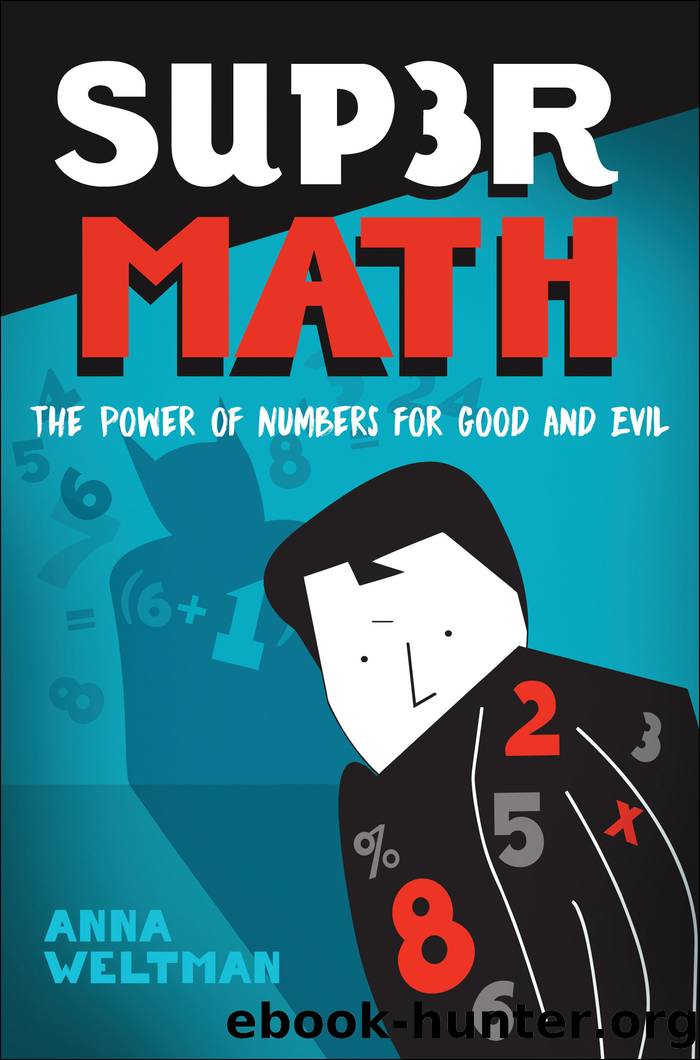Supermath by Anna Weltman

Author:Anna Weltman
Language: eng
Format: epub
Publisher: Johns Hopkins University Press
Published: 2020-08-15T00:00:00+00:00
4 Can Math Open Doors?
Math and the Problem of
OPPORTUNITY
âMany People Think That for Math You Have to Be Perfectâ
A soft-spoken girl, not more than fifteen years old, sits in front of the camera. Her wide-eyed joy is evident despite her large glasses and the dark hair draped across her eyes. She says,
I would say that math is art⦠. It can change your mindset, and it can open, like, billions of worlds in your head with formulas, and you can create infinite, like, numbers. And, itâs just really fun to play with. And many people think that for math you have to be perfectâyou have to do the formula this way, that way. But you can also explore with these formulas and with these numbers. And create something so really coolâreally really cool.
These words may disclose her youth, but they donât reveal that her early school years were, as she puts it, ânot so great.â That she is Latina and grew up in the Bronx. Or that she has not previously enjoyed math. And yet now she says that math is âfun to play with.â And that math allows her to create âsomething so really coolâreally really cool.â
When we imagine a person who says that math âcan open billions of worlds in your head with formulas,â do we picture someone like this young woman? And if we donât, why not?
The young woman in this interview would consider herself a novice mathematician. Professional mathematicians from her demographic are rare. The Annual Survey of the Mathematical Sciences found that of the 1,926 math PhDs awarded in 2014, only 13 went to Hispanic or Latina women. Hispanic and Latino men did a little better, earning 54 of those PhDs. Together, Latinx make up no more than four percent of the total math PhDs while making up almost twenty percent of the population of the United States.
Even more relevant for this young woman, given her age, is that only nineteen percent of Latino eighth graders were deemed proficient in math in 2015 on the National Assessment of Educational Progress. In contrast, forty-three percent of white eighth graders reached that important math benchmark. This young woman is one of a very few.
The relative absence of women and people of color in the fields of science, technology, engineering, and mathâalso known as STEMâis a well-known problem. Of the four STEM fields, math is the least diverse. This is not merely an academic problem. It is also a social problem. Lack of diversity in STEM is the source of other problems in our society. A significant amount of the economic opportunity in our society is related to expertise and academic degrees in STEM fields. Minority groups that are shut out of STEM fields are shut out of a large swath of economic opportunities, which can hurt these groups economically, socially, and politically. It can also leave them out of the loop when it comes to solving problems that may directly affect themselves and their communities. People with
Download
This site does not store any files on its server. We only index and link to content provided by other sites. Please contact the content providers to delete copyright contents if any and email us, we'll remove relevant links or contents immediately.
Modelling of Convective Heat and Mass Transfer in Rotating Flows by Igor V. Shevchuk(6432)
Weapons of Math Destruction by Cathy O'Neil(6264)
Factfulness: Ten Reasons We're Wrong About the World – and Why Things Are Better Than You Think by Hans Rosling(4731)
A Mind For Numbers: How to Excel at Math and Science (Even If You Flunked Algebra) by Barbara Oakley(3301)
Descartes' Error by Antonio Damasio(3270)
Factfulness_Ten Reasons We're Wrong About the World_and Why Things Are Better Than You Think by Hans Rosling(3230)
TCP IP by Todd Lammle(3180)
Fooled by Randomness: The Hidden Role of Chance in Life and in the Markets by Nassim Nicholas Taleb(3105)
The Tyranny of Metrics by Jerry Z. Muller(3065)
Applied Predictive Modeling by Max Kuhn & Kjell Johnson(3064)
The Book of Numbers by Peter Bentley(2964)
The Great Unknown by Marcus du Sautoy(2690)
Once Upon an Algorithm by Martin Erwig(2641)
Easy Algebra Step-by-Step by Sandra Luna McCune(2628)
Lady Luck by Kristen Ashley(2576)
Police Exams Prep 2018-2019 by Kaplan Test Prep(2540)
Practical Guide To Principal Component Methods in R (Multivariate Analysis Book 2) by Alboukadel Kassambara(2538)
All Things Reconsidered by Bill Thompson III(2389)
Linear Time-Invariant Systems, Behaviors and Modules by Ulrich Oberst & Martin Scheicher & Ingrid Scheicher(2364)
